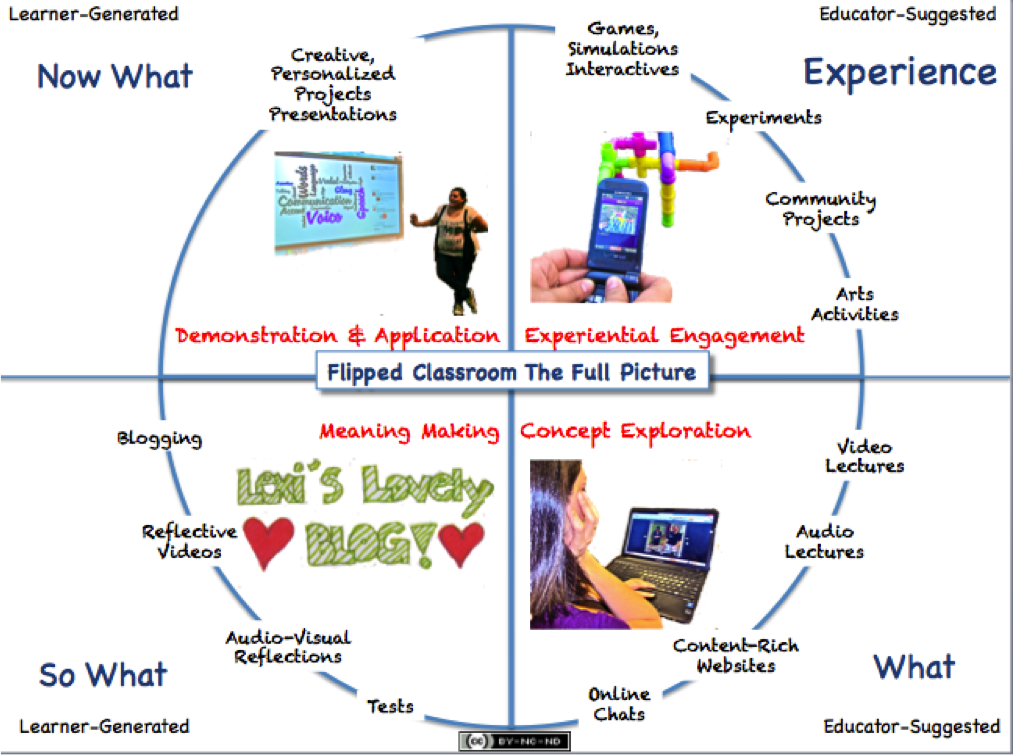We held a productive EKM workshop yesterday to explore some practical techniques for implementing flexible learning practices into courses, and how to evaluate them.
Flexible learning is described as:
- A way that meets the needs of the learner, aligns with the nature and requirements of the discipline, and uses the expertise of the instructor all to best effect
- Logistical flexibility – flexibility of location, time, pace of learning, and credentialing
- Pedagogical flexibility – flexibility of delivery, interaction, and media of instruction
Techniques may include the use of:
The Flipped Classroom
A heuristic pedagogic strategy where students watch lectures or access resources at home online at their own pace, actively communicating with peers and teachers online to explore and develop understanding, and concept development and engagement occurs in the classroom
Asynchronous and Synchronous Techniques
Asynchronous
Posting Videos/Podcasts/Audio & follow up – Kaltura
Discussion board activities
Record and post a Pecha Kucha
Synchronous
Webinar – Connect Collaborate
Live Tutorial Chat – Q & A
Social Media Activities
Some of these can be done in a secure Connect environment
- Post a question as a blog post and get students to respond individually or in groups (they must reach a consensus) with a solution
- Ask students to collaborate on a wiki post to solve a problem
- Ask students to create, edit or update a Wikipedia entry
We also explored evaluation methods and the Kirkpatrick evaluation framework we will be using in our Flexible Learning project this coming year.
The slides associated with the workhop can be found at the following link:
Flexible Learning Techniques & Evaluation Strategies

